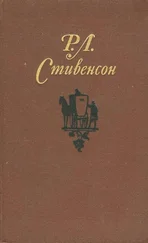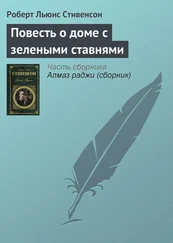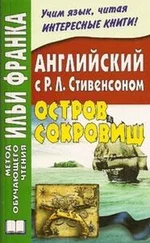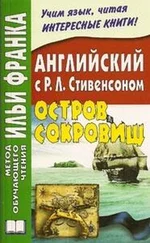Роберт Стивенсон - Memoir of Fleeming Jenkin
Здесь есть возможность читать онлайн «Роберт Стивенсон - Memoir of Fleeming Jenkin» — ознакомительный отрывок электронной книги совершенно бесплатно, а после прочтения отрывка купить полную версию. В некоторых случаях можно слушать аудио, скачать через торрент в формате fb2 и присутствует краткое содержание. Жанр: literature_19, foreign_antique, foreign_prose, Биографии и Мемуары, на английском языке. Описание произведения, (предисловие) а так же отзывы посетителей доступны на портале библиотеки ЛибКат.
- Название:Memoir of Fleeming Jenkin
- Автор:
- Жанр:
- Год:неизвестен
- ISBN:нет данных
- Рейтинг книги:3 / 5. Голосов: 1
-
Избранное:Добавить в избранное
- Отзывы:
-
Ваша оценка:
- 60
- 1
- 2
- 3
- 4
- 5
Memoir of Fleeming Jenkin: краткое содержание, описание и аннотация
Предлагаем к чтению аннотацию, описание, краткое содержание или предисловие (зависит от того, что написал сам автор книги «Memoir of Fleeming Jenkin»). Если вы не нашли необходимую информацию о книге — напишите в комментариях, мы постараемся отыскать её.
Memoir of Fleeming Jenkin — читать онлайн ознакомительный отрывок
Ниже представлен текст книги, разбитый по страницам. Система сохранения места последней прочитанной страницы, позволяет с удобством читать онлайн бесплатно книгу «Memoir of Fleeming Jenkin», без необходимости каждый раз заново искать на чём Вы остановились. Поставьте закладку, и сможете в любой момент перейти на страницу, на которой закончили чтение.
Интервал:
Закладка:
Facility and self-indulgence are the family marks; facility (to judge by these imprudent marriages) being at once their quality and their defect; but in the case of Charles, a man of exceptional beauty and sweetness both of face and disposition, the family fault had quite grown to be a virtue, and we find him in consequence the drudge and milk-cow of his relatives. Born in 1766, Charles served at sea in his youth, and smelt both salt water and powder. The Jenkins had inclined hitherto, as far as I can make out, to the land service. Stephen’s son had been a soldier; William (fourth of Stowting) had been an officer of the unhappy Braddock’s in America, where, by the way, he owned and afterwards sold an estate on the James River, called, after the parental seat; of which I should like well to hear if it still bears the name. It was probably by the influence of Captain Buckner, already connected with the family by his first marriage, that Charles Jenkin turned his mind in the direction of the navy; and it was in Buckner’s own ship, the Prothée , 64, that the lad made his only campaign. It was in the days of Rodney’s war, when the Prothée , we read, captured two large privateers to windward of Barbadoes, and was ‘materially and distinguishedly engaged’ in both the actions with De Grasse. While at sea Charles kept a journal, and made strange archaic pilot-book sketches, part plan, part elevation, some of which survive for the amusement of posterity. He did a good deal of surveying, so that here we may perhaps lay our finger on the beginning of Fleeming’s education as an engineer. What is still more strange, among the relics of the handsome midshipman and his stay in the gun-room of the Prothée , I find a code of signals graphically represented, for all the world as it would have been done by his grandson.
On the declaration of peace, Charles, because he had suffered from scurvy, received his mother’s orders to retire; and he was not the man to refuse a request, far less to disobey a command. Thereupon he turned farmer, a trade he was to practice on a large scale; and we find him married to a Miss Schirr, a woman of some fortune, the daughter of a London merchant. Stephen, the not very reverend, was still alive, galloping about the country or skulking in his chancel. It does not appear whether he let or sold the paternal manor to Charles; one or other, it must have been; and the sailor-farmer settled at Stowting, with his wife, his mother, his unmarried sister, and his sick brother John. Out of the six people of whom his nearest family consisted, three were in his own house, and two others (the horse-leeches, Stephen and Thomas) he appears to have continued to assist with more amiability than wisdom. He hunted, belonged to the Yeomanry, owned famous horses, Maggie and Lucy, the latter coveted by royalty itself. ‘Lord Rokeby, his neighbour, called him kinsman,’ writes my artless chronicler, ‘and altogether life was very cheery.’ At Stowting his three sons, John, Charles, and Thomas Frewen, and his younger daughter, Anna, were all born to him; and the reader should here be told that it is through the report of this second Charles (born 1801) that he has been looking on at these confused passages of family history.
In the year 1805 the ruin of the Jenkins was begun. It was the work of a fallacious lady already mentioned, Aunt Anne Frewen, a sister of Mrs. John. Twice married, first to her cousin Charles Frewen, clerk to the Court of Chancery, Brunswick Herald, and Usher of the Black Rod, and secondly to Admiral Buckner, she was denied issue in both beds, and being very rich – she died worth about 60,000 l. , mostly in land – she was in perpetual quest of an heir. The mirage of this fortune hung before successive members of the Jenkin family until her death in 1825, when it dissolved and left the latest Alnaschar face to face with bankruptcy. The grandniece, Stephen’s daughter, the one who had not ‘married imprudently,’ appears to have been the first; for she was taken abroad by the golden aunt, and died in her care at Ghent in 1792. Next she adopted William, the youngest of the five nephews; took him abroad with her – it seems as if that were in the formula; was shut up with him in Paris by the Revolution; brought him back to Windsor, and got him a place in the King’s Body-Guard, where he attracted the notice of George III. by his proficiency in German. In 1797, being on guard at St. James’s Palace, William took a cold which carried him off; and Aunt Anne was once more left heirless. Lastly, in 1805, perhaps moved by the Admiral, who had a kindness for his old midshipman, perhaps pleased by the good looks and the good nature of the man himself, Mrs. Buckner turned her eyes upon Charles Jenkin. He was not only to be the heir, however, he was to be the chief hand in a somewhat wild scheme of family farming. Mrs. Jenkin, the mother, contributed 164 acres of land; Mrs. Buckner, 570, some at Northiam, some farther off; Charles let one-half of Stowting to a tenant, and threw the other and various scattered parcels into the common enterprise; so that the whole farm amounted to near upon a thousand acres, and was scattered over thirty miles of country. The ex-seaman of thirty-nine, on whose wisdom and ubiquity the scheme depended, was to live in the meanwhile without care or fear. He was to check himself in nothing; his two extravagances, valuable horses and worthless brothers, were to be indulged in comfort; and whether the year quite paid itself or not, whether successive years left accumulated savings or only a growing deficit, the fortune of the golden aunt should in the end repair all.
On this understanding Charles Jenkin transported his family to Church House, Northiam: Charles the second, then a child of three, among the number. Through the eyes of the boy we have glimpses of the life that followed: of Admiral and Mrs. Buckner driving up from Windsor in a coach and six, two post-horses and their own four; of the house full of visitors, the great roasts at the fire, the tables in the servants’ hall laid for thirty or forty for a month together; of the daily press of neighbours, many of whom, Frewens, Lords, Bishops, Batchellors, and Dynes, were also kinsfolk; and the parties ‘under the great spreading chestnuts of the old fore court,’ where the young people danced and made merry to the music of the village band. Or perhaps, in the depth of winter, the father would bid young Charles saddle his pony; they would ride the thirty miles from Northiam to Stowting, with the snow to the pony’s saddle girths, and be received by the tenants like princes.
This life of delights, with the continual visible comings and goings of the golden aunt, was well qualified to relax the fibre of the lads. John, the heir, a yeoman and a fox-hunter, ‘loud and notorious with his whip and spurs,’ settled down into a kind of Tony Lumpkin, waiting for the shoes of his father and his aunt. Thomas Frewen, the youngest, is briefly dismissed as ‘a handsome beau’; but he had the merit or the good fortune to become a doctor of medicine, so that when the crash came he was not empty-handed for the war of life. Charles, at the day-school of Northiam, grew so well acquainted with the rod, that his floggings became matter of pleasantry and reached the ears of Admiral Buckner. Hereupon that tall, rough-voiced, formidable uncle entered with the lad into a covenant: every time that Charles was thrashed he was to pay the Admiral a penny; everyday that he escaped, the process was to be reversed. ‘I recollect,’ writes Charles, ‘going crying to my mother to be taken to the Admiral to pay my debt.’ It would seem by these terms the speculation was a losing one; yet it is probable it paid indirectly by bringing the boy under remark. The Admiral was no enemy to dunces; he loved courage, and Charles, while yet little more than a baby, would ride the great horse into the pond. Presently it was decided that here was the stuff of a fine sailor; and at an early period the name of Charles Jenkin was entered on a ship’s books.
Читать дальшеИнтервал:
Закладка:
Похожие книги на «Memoir of Fleeming Jenkin»
Представляем Вашему вниманию похожие книги на «Memoir of Fleeming Jenkin» списком для выбора. Мы отобрали схожую по названию и смыслу литературу в надежде предоставить читателям больше вариантов отыскать новые, интересные, ещё непрочитанные произведения.
Обсуждение, отзывы о книге «Memoir of Fleeming Jenkin» и просто собственные мнения читателей. Оставьте ваши комментарии, напишите, что Вы думаете о произведении, его смысле или главных героях. Укажите что конкретно понравилось, а что нет, и почему Вы так считаете.







